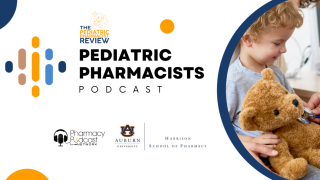Who is the CDC Searching For at These Airports

The U.S. Centers for Disease Control and Prevention (CDC) Director Rochelle Walensky recently confirmed the agency is ramping up traveler testing and surveillance at four key U.S airports.
Under the extended CDC program, any traveler arriving at John F. Kennedy International, Liberty International, San Francisco International, and Hartsfield-Jackson International airports are being monitored for SARS-CoV-2 virus infections, including the new Omicron variant.
Although the risk of getting a contagious disease on an airplane is low, public health officers sometimes need to find and alert travelers who may have been exposed to a sick passenger during a flight.
In a press release, Dr. Martin Cetron, the Director for the Division of Global Migration and Quarantine (DGMQ) at the CDC, stated, “We are actively working to scale up this collaborative post-arrival airport-based surveillance testing program to monitor if this new variant is in arriving travelers.”
Beginning in June 2021, XpresCheck expanded its biosurveillance program to test various passengers entering the U.S. at specific airports, such as JFK. JFK currently offers different testing options in three terminals.
The new CDC program offers travelers two types of free virus testing options.
The first is a PCR test done on a pooled sample collected at the airport on arrival. A pooled test means several passengers’ samples are combined and tested as a group. This approach enables efficient large-scale testing of many passengers entering the country.
The second option is an at-home specimen collection kit that passengers can take with them and mail back a sample collected three to five days after arrival into the U.S. for individualized PCR testing.
This program provides results to passengers and public health authorities to help interrupt the chain of transmission in US communities and detect coronavirus variants entering the U.S.
Concentric by Ginkgo manages the testing program, which includes genetic sequencing of positive tests to detect the presence of SARS-CoV-2 variants. The CDC uses these results to inform public health decision-making for ongoing surveillance purposes.
“We stand ready to provide the biosecurity tools and expertise needed to give our public health leaders the weather map they need at this point in the pandemic,” commented Matthew McKnight, Ginkgo Bioworks’ Chief Commercial Officer.
“This collaboration with the incredible teams at XpresCheck and the CDC will provide critical information for passengers, for communities, and national pandemic response.”
According to new data released by the Transportation Security Administration (TSA), overall travel in the U.S. remains below levels recorded in 2021. For example, the TSA screened just under 21 million travelers during the 10-day Thanksgiving holiday, about 20% less activity than in 2019.
TSA Administrator David Pekoske stated in a press release issued on December 7, 2021, “We work hard with our airport and airline partners to achieve this by ensuring screening operations meet the upcoming demand.”
Since March 2020, TSA has dramatically modified airport security checkpoint operations due to the COVID-19 pandemic to improve social distancing and reduce physical contact. These operational modifications continue in an effort to contain the virus, including the new Omicron variant.
These TSA changes include upgraded screening and credential authentication equipment at many airports to help reduce physical contact.
Currently, the CDC has Quarantine Stations covering all 300-plus US ports of entry.
Vax-Before-Travel publishes fact-checked research-based travel vaccine news.
Our Trust Standards: Medical Advisory Committee
























